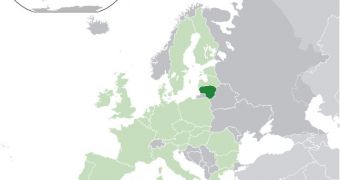In an important event, representatives from the Government of the Republic of Lithuania signed a new cooperation agreement with the European Space Agency (ESA), which deals with the Baltic country's participation in research related to using space technologies for peaceful purposes.
Within the new framework, the country is now allowed to participate alongside other ESA member states in researching and developing such technologies, and may also benefit from them.
Business and scientific communities in the country may now incorporate any prospective results derived from this collaboration into their own research initiatives or released products.
This is forbidden to do for countries that are not involved with ESA into producing the relevant technologies in the first place, without prior consultation and approval.
ESA technicians and professionals in all fields will from now on be able to provide free-of-charge assistance to Lithuanian colleagues in the scientific, technical and organizational aspects of the collaboration.
Using this opportunity, scientists and businesses in Lithuania will start to get used to the way ESA implements and upholds standardization and certification requirements related to space studies.
Cooperation with and membership in ESA will allow Lithuania to be engaged in the development and application of state-of-the-art technologies; it will guarantee better development of high technologies in Lithuania and increase national competitiveness,” said Dainius Kreivys.
He is the Lithuanian Minister of Economy. The official signed the agreement with Peter Hulsroj, who is the ESA Director of Legal Affairs and External Relations.
“Moreover, the ESA membership will ensure return on investment in R&D and technological development,” the Lithuanian representative added at the meeting, quoted by SpaceRef.
Space-related technologies have over the past decade or so become an integrated part of everyday life, as they are employed in everything from weather forecast to satellite navigation.
TV broadcasting and Internet access are also two areas that have been innovated extensively using know-how that was originally developed to support space exploration missions.
Neighboring Latvia already signed the Cooperation Agreement with ESA back in 2009, while Estonia is already ahead of the other two Baltic countries in terms of its involvement with the European space agency.

 14 DAY TRIAL //
14 DAY TRIAL //